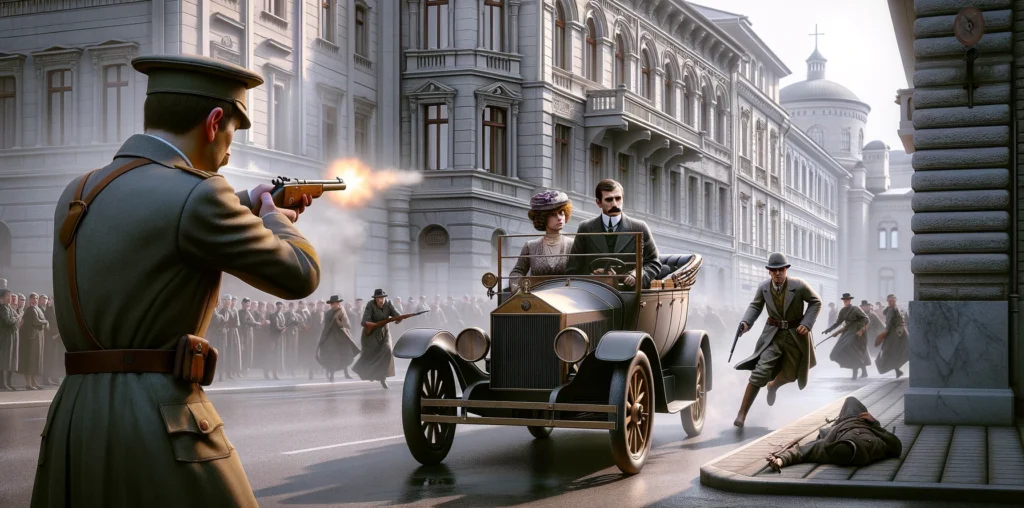The assassination of Archduke Franz Ferdinand of Austria and his wife, Sophie, on June 28, 1914, in Sarajevo, set off a chain reaction that led to the outbreak of World War I. The assassin, Gavrilo Princip, was a member of the Black Hand, a Serbian nationalist organization seeking independence from Austro-Hungarian rule.
The assassination triggered a series of diplomatic crises and alliances, culminating in Austria-Hungary declaring war on Serbia. This declaration set off a domino effect, drawing in major powers and igniting a conflict that would engulf much of the world. The assassination of Franz Ferdinand is often seen as the immediate cause of World War I, a war that reshaped the geopolitical landscape and had profound consequences for the 20th century.
The events leading up to the assassination were marked by rising tensions and nationalist fervor in the Balkans. The Austro-Hungarian Empire’s annexation of Bosnia and Herzegovina in 1908 had already inflamed nationalist sentiments among Serbs, who sought to unify all South Slavs into a single state.
The assassination itself was a dramatic and tragic event. Franz Ferdinand and Sophie were traveling through Sarajevo in an open car when Princip fired the fatal shots. The couple’s deaths shocked Europe and set off a series of ultimatums, mobilizations, and declarations of war that quickly escalated into a global conflict.
The war that followed, known as the Great War, resulted in unprecedented destruction and loss of life. It led to the collapse of empires, redrawing of borders, and significant political and social changes. The assassination of Archduke Franz Ferdinand remains a poignant reminder of the fragility of peace and the far-reaching consequences of political violence.

